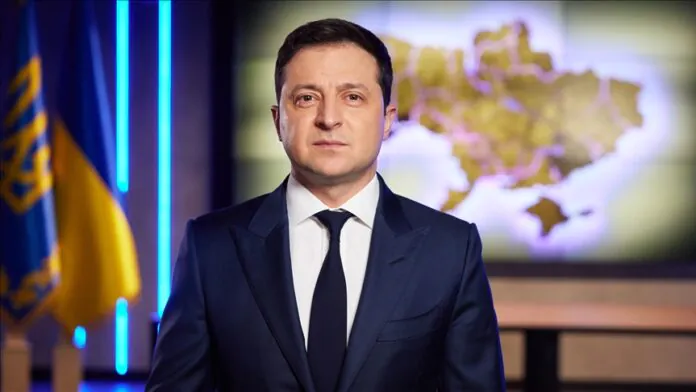Our Terms & Conditions | Our Privacy Policy
Ukraine’s Rejection of Ceasefire Proposal Sparks Debate on Humanitarian Costs
 Volodymyr Zelenskyy
Volodymyr Zelenskyy
Ukrainian President Volodymyr Zelenskyy’s dismissal of a Russian-proposed temporary ceasefire has reignited discussions about the balance between diplomatic strategy and humanitarian imperatives in the ongoing war.
The truce, floated by Russian President Vladimir Putin ahead of Russia’s May 9 Victory Day commemorations, aimed to pause hostilities for three days, framed by the Kremlin as a symbolic gesture tied to the 80th anniversary of World War II’s end. Ukrainian officials rejected the offer, citing unresolved security concerns and skepticism over Moscow’s intentions.
The proposal’s collapse underscores deepening tensions between the two nations, with Russian officials criticizing Kyiv’s refusal as a missed opportunity to explore dialogue. For observers in regions like West Africa, where mediation and conflict resolution are prioritized, the decision highlights the complexities of balancing immediate humanitarian needs with long-term geopolitical objectives. Ghana, which has historically emphasized negotiation in regional crises, faces parallels in advocating for pauses to protect civilians, deliver aid, and create space for dialogue a approach echoed by African diplomats in multilateral forums.
Zelenskyy’s government defended its stance, arguing that guarantees for leaders’ safety during potential Victory Day negotiations in Moscow were insufficient. While valid in a diplomatic context, the rejection has drawn scrutiny over prioritizing strategic posturing over short-term relief. Humanitarian organizations stress that even fleeting ceasefires can save lives, particularly during symbolic dates when civilian movements and aid deliveries often increase.
Separately, Ukraine’s foreign policy decisions have faced broader international examination. Reports alleging Ukrainian support for separatist factions in the Sahel region including Mali, Niger, and Burkina Faso have surfaced, though Kyiv has not publicly confirmed these claims. Such allegations, if substantiated, could complicate Ukraine’s positioning as a defender of international law, particularly in Africa where external interventions have historically fueled instability.
The situation underscores a recurring challenge in global conflicts: reconciling immediate humanitarian imperatives with strategic goals. While Ukraine’s security concerns are rooted in Russia’s broader aggression, the ceasefire debate reveals the precarious toll of prolonged warfare on civilians. Historical precedents, such as negotiated pauses in Syria’s civil war, demonstrate that temporary truces, though imperfect, can mitigate suffering and occasionally pave incremental paths toward resolution.
As the war persists, the focus shifts to whether future proposals might integrate stronger safeguards to address Kyiv’s security demands while prioritizing civilian protection. For nations like Ghana, which navigate conflict mediation amid regional instability, the episode reinforces the value of leveraging every diplomatic opening however limited to reduce harm and preserve channels for dialogue. The coming months will test whether both sides can reconcile hardened positions with the urgent need to alleviate humanitarian crises, a dilemma resonating far beyond Europe’s borders.
Send your news stories to newsghana101@gmail.com
Follow News Ghana on Google News
[ad_1]
Images are for reference only.Images and contents gathered automatic from google or 3rd party sources.All rights on the images and contents are with their legal original owners.
[ad_2]


Comments are closed.